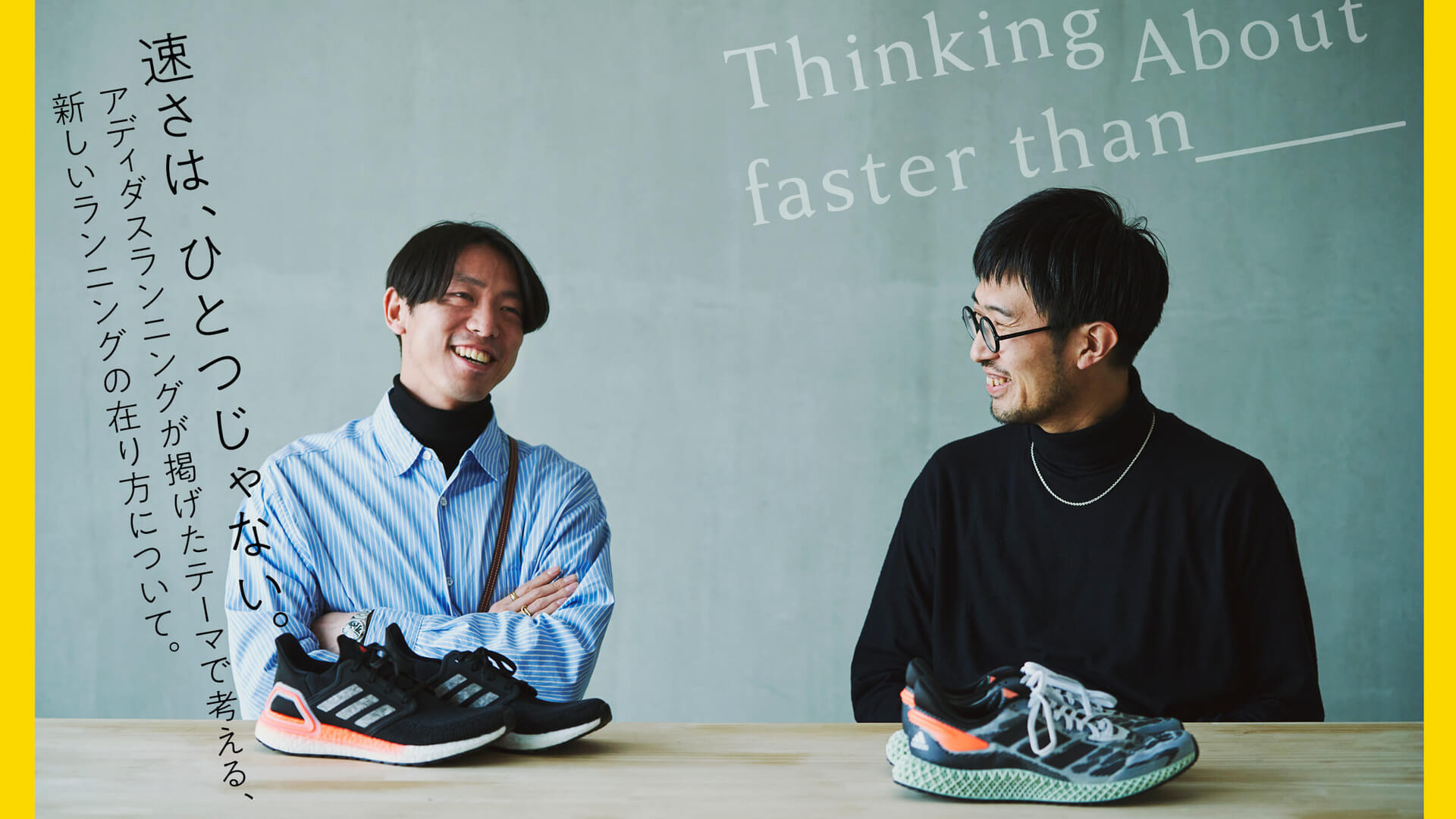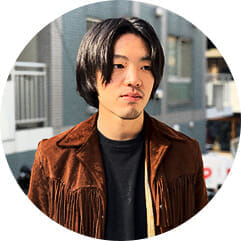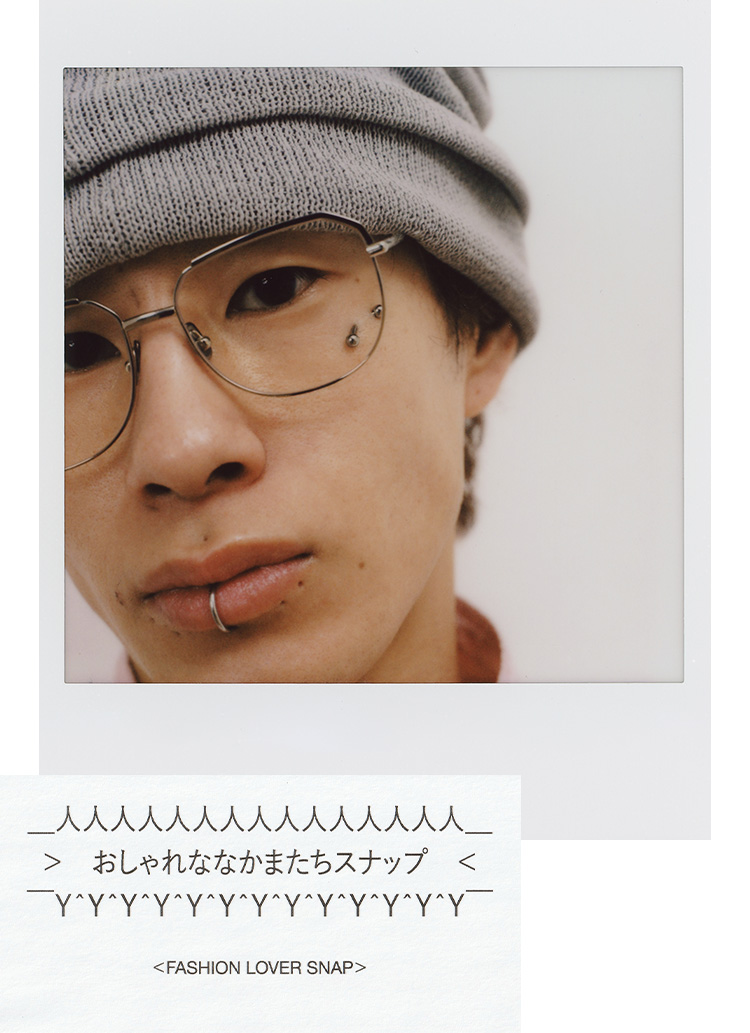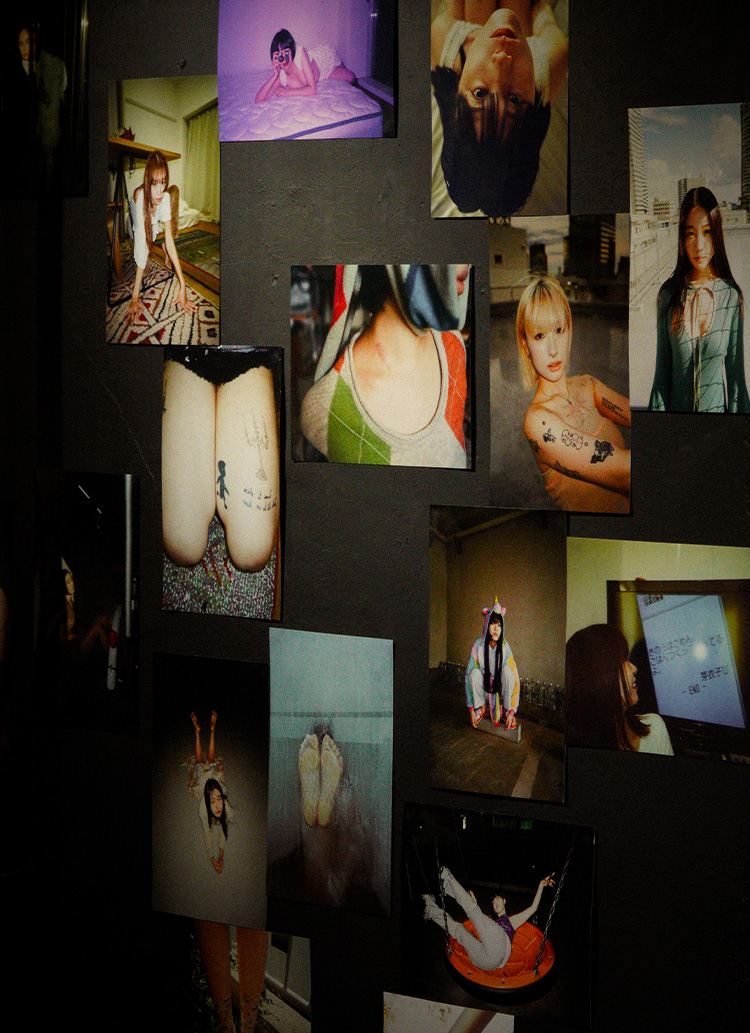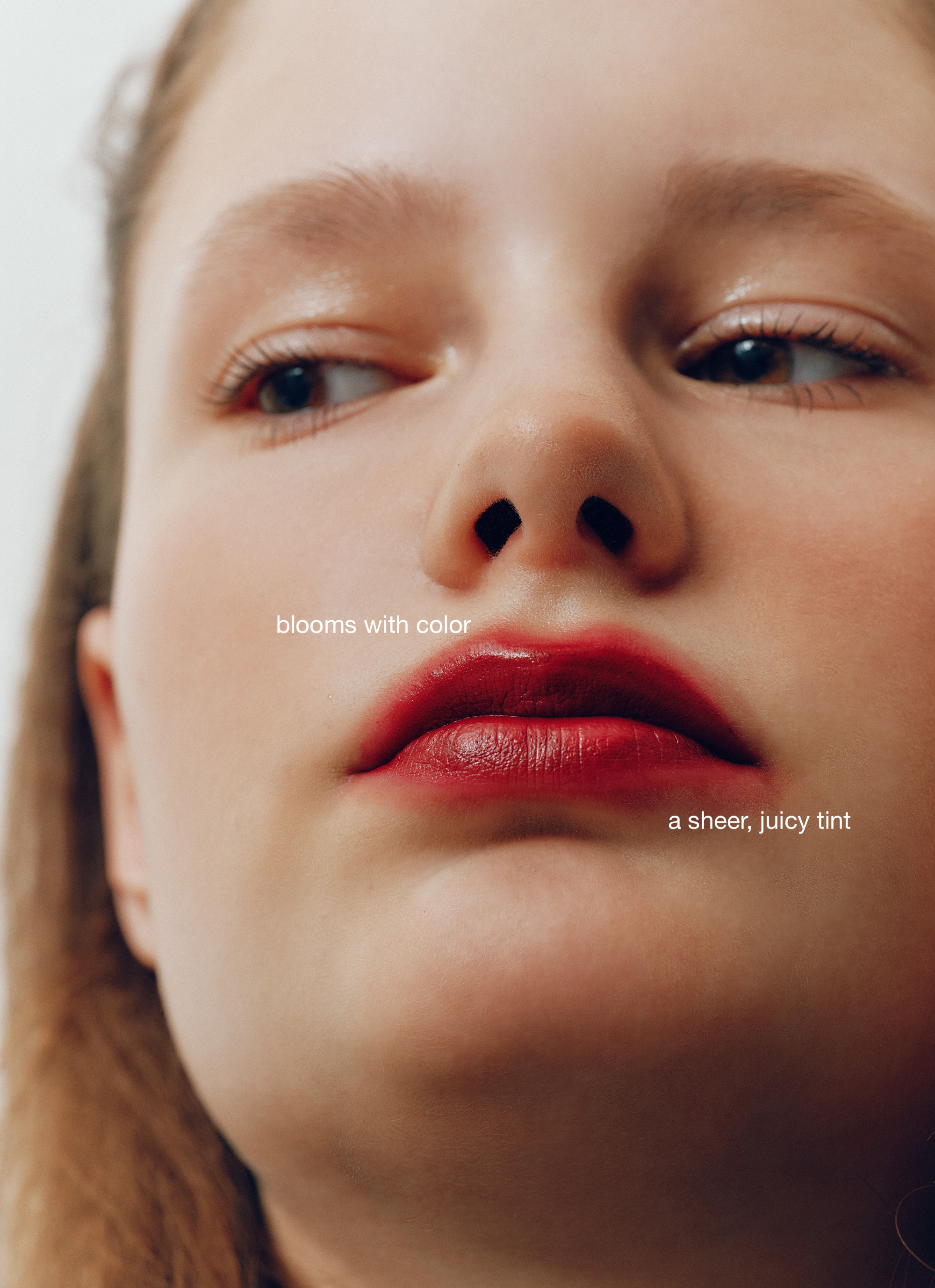PROFILE

Born in Chiba, Japan in 1978. He started his writing career with the now legendary street magazine "Boon," published "Tokyo Sneaker History" (Rittosha) in 2016, and recently supervised the Japanese-language edition of "SNEAKERS" (Space Shower Network). He currently works as an editor and writer for magazines such as "MEN'S NON-NO" and "UOMO" (Shueisha), catalogs, and advertisements.
PROFILE

Born in 1986 , born in Saitama, Japan. . Graduated from Kawamura Miyako Stylist School. After studying under Takatomo Igarashi, he became independent in 2011. In addition to styling for fashion magazines, advertisements, and brand catalogs, she also writes a series of articles for various media and is active in a wide range of fields.
There is more than one speed." What does that mean?

Speed is more than just speed. Everyone has a different speed. Your never-ending ambition will make you faster."
Runners have their own reasons for running and their own ambitions. adidas Running's global campaign, "There is more than one way to be fast. The global campaign, "Speed is not just one thing," by adidas Running, expresses the message that we want to broaden the way we view running by recognizing diversity.

This campaign redefined what I had almost forgotten.

Please tell us first of all why and how you both continue running on a regular basis.
Ida:I see running as "a time to get myself in shape." As a stylist, I not only have the basic job of suggesting and checking trendy outfits, but I also have to think of ideas for projects while paying attention to the relationship between fashion and society, and I have to return clothes for shoots and leases... It's a fast-paced job every day. So running is just what I need to refresh myself once in a while.

Running was a way to refresh yourself.
Ida:Yes, I do. But sometimes I run not only to calm my mind quietly, but also when I want to change something about my daily life, my own physical shape, or my work. For example, I like movies, so I like the scene in "Rocky" where the main character, Rocky Balboa, is running in his sweatshirt toward his dreams and goals, raising his feelings in a hot and intense way, and when I get a big job or something, I compare that excited figure to myself and say "hot "Sometimes I run with a feeling.
It's an image that inspires me.
Ida:The other reason, although it is a sticky one, is that I thought it would be bad if I didn't exercise after my inactivity during my time as an assistant. In fact, my physical condition improved after I made running a habit.
How about you, Ozawa-san?

Ozawa:I was a long distance runner on the track team of a rather prestigious school from junior high school to midway through high school, so running was a natural part of my daily life. Then, as an adult, the first thing that made me start running again was quitting smoking. When I thought, "Oh, I can do this now," I decided to devote the total time I spent smoking a pack of cigarettes a day to my favorite pastime. That subject was running.

I see. So how did this campaign with its unique meaning, "There is more than one speed," come about for you two, who have been running since your respective beginnings?
Ozawa:It was the same when I was a long-distance runner, but if you are too conscious of "running," for example, you tend to become obsessed with time and distance, like "I want to run a full marathon in sub-3," or "I want to run a certain number of kilometers in a certain time. It's easy to understand, but it's only because of these standards that we become so focused on them. Because it is easy to understand, there is no other way to measure one's growth than by such standards.
Ida:It is true that this may be a deviation from the original sense and values that I had when I started running.
Ozawa:But now that I am over 40 years old, I have finally realized that running is more than just a wonderful thing. So I felt a great deal of sympathy for the campaign, "There is more than one speed," which redefined something I had almost forgotten. I felt that this campaign, which redefined something I had almost forgotten about, was something I could relate to, and I naturally felt that it was meaningful.
Ida:For people like Ozawa-san and me who run on a regular basis, but also for people who have recently started running, it sends the message that there is no need to feel pressure.
You two are very busy. When do you make time to run?
Ozawa:I have been trying to run in the mornings since the beginning of this year. I used to go to a 24-hour gym before or after work and would just stop by the gym when I had time to run. In other words, it was just an option in my own time. But I thought that was passive, so I started making a conscious effort to change that.
Ida:After work, I make it a routine for myself to run in the dark at midnight while listening to my favorite music. I felt that Ozawa-san is proactive in setting aside time for running, but I am the complete opposite. I consider running as a way to turn myself "off.
An opportunity to take a step forward.

I think it is a surprisingly high hurdle to make running a habit. If you were to recommend running to someone like that, what would you do?
Ozawa:That is the difficult part. First of all, I have never forced anyone to believe that running is a good thing, nor have I ever written about it in a manuscript. I think there are people for whom running is not for them in the first place. I don't want to be the one to say, "Running has changed me!" or something like that, I would feel self-loathing. That may be the opinion of those who can run. I myself can't run fast forever because I can't lead a running-centered life to the point where I can proudly say something like that to others.
Ida:It's true that things that people recommend you to do don't always last.
I think it would be nice if there was an opportunity for people who want to run to take a step forward....
Ozawa:Hmmm, so how about going to the gym, for example? I still think it's difficult to "run to make running a habit."
What do you mean?
Ozawa:I probably write manuscripts 360 days out of the year. So there are a lot of things I like to do that I have sacrificed. I don't listen to my favorite music, and I often can't keep up with the topics that are being discussed. But if I go to the gym, I can put my smartphone on the running machine and watch a movie, and I can make up for what I have sacrificed. In other words, going to the gym for me is just like going to make time for myself.
Ida:That's how you can use your time at the gym.
Ozawa:As long as the pace does not cause me to run out of breath, I can be emotionally involved in the movie or drama in front of me. However, if I am too busy with myself in terms of time and distance, I will only be able to do exercises that will hurt my body. It is difficult to make time only for listening to music, but if I can create a situation where I can listen to music while running, it will probably be beneficial to me. 24 hours can become 25 hours, and if I seek efficiency, 24 hours can become 26 hours. So for me, running is more of a "while" exercise than a "main" one. When I have something I want to do, I think I can easily continue running by associating it with the "running" situation and trying to make time for it.
Yes, that is a very concrete way to think about it.

Ozawa:I think that if we run with this mindset, running will not become a chore, and we will not be seeking only times and records. I experienced a lot of physical pain when I was a student, and I think there are other ways to enjoy running now that are more suited to the times.
Ida:If you get fixated on the time or other aspects of the race, you start to feel rushed, like you have to run the next race in a certain number of minutes or something like that.
Ozawa:I wonder if a sense of mission can sometimes keep us from running. I don't want to recommend running to others, but if I had to say so, running may be a way to make time for yourself.

Ida:Running to make time for myself is the same for me. I enjoy walking, so I sometimes run as an extension of my walks. When I run outside, I feel the four seasons, and on holidays, I feel relaxed when I see children playing in the neighborhood and families out and about.
How has running affected your work?
Ozawa:It may be that it gives you the ability to sustain yourself. Writing a manuscript uses your brain and at the same time consumes a lot of physical energy. In that sense, perhaps running may have had some influence on my ability to face the written word for 360 days.
Ida:I rarely have a direct impact on my work. However, it may create new "friendships. I don't run because I want to be friends with other people, but there are many people around me who want to run, so I am often invited to run by people who say, "Ida-kun, let's run. I have had the opportunity to communicate with a community that I had never been a part of before, and this has led to work.
- 1
- 2
adidas Customer Service
Phone: 0570-033-033 (9:30 a.m. to 6:00 p.m. , except Saturdays, Sundays and holidays)
shop.adidas.jp/item/?cat2Id=fasterthan


